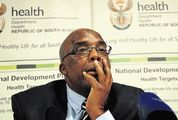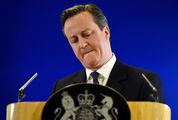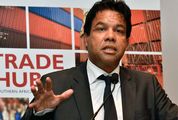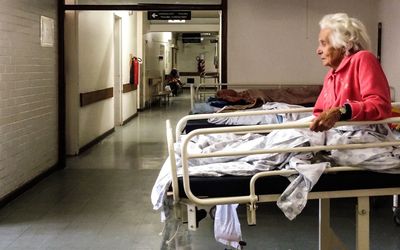THE high cost of private health care took centre stage at the health market inquiry on Wednesday, amid revelations that South Africans pay six times the international average for hospital stays.
A World Health Organisation (WHO) commissioned study on price levels for private hospitals found that 41.8% of the funds spent on private voluntary health insurance in South Africa were equivalent to 3.7% of the country’s gross domestic product (GDP).
This is six times the average in the Organisation for Economic Cooperation and Development (OECD) countries, despite the expenditure in SA only covering 17% of the population, read the report.
The report, presented on the second day of the Health Market Inquiry in Pretoria, also found that South Africans stayed in hospitals for an average of 3.9 days compared to 5.1 days in OECD countries.
"The unusually low lengths of stay in private hospitals is probably the result of crosscutting effects," said Tomas Roubal who presented the report.
Also at the enquiry were head of the OECD Health Division, Francesca Colombo, WHO’s SA representative Sarah Barber and OECD economist Luca Lorenzi, who co-authored the report with Mr Roubal, a WHO economist.
The inquiry panel, chaired by former Constitutional Justice Sandile Ngcobo, questioned the methodology of the research.
Panel member Dr Ntuthuko Bhengu said SA was not as developed as the countries it was compared to which include the US, Canada, Italy and Switzerland.
"Isn’t this (report) a little dramatic given that we (South Africa’s development) are not there yet?" he asked.
The panel also asked why the group had compared SA’s private healthcare sector to that of OECD countries, when South Africans are often forced towards private healthcare because of the low quality in the public sector.
On the sidelines of the inquiry Mrs Barber said the report didn’t look at quality issues between the private and public sectors.
United Nations resident co-ordinator Gana Fofang said there was a case for improving public healthcare quality "because people (in SA) are obliged to go (there)".
"Is this (low GDP growth) the way the country wants to develop human capital?" he asked. SA needed a health policy that ensures growth.
Chairwoman of the Hospital Association of SA (Hasa) Melanie Da Costa said the report was inaccurate.
"It is unfair to compare (SA’s) private healthcare to overseas public healthcare …. you’ve got to benchmark the costs to the country you’re working in," said Ms Da Costa.
She said the results of the report were distorted by income inequalities and that instead research should have dwelt on affordability.
Earlier in the day, NGO Section27 and mental health groups the South African Federation for Mental Health (SAFMH) and the South African Depression and Anxiety Group (SADAG) made their submissions.
They called for regulation of healthcare prices in SA and so allow for more access as many people couldn’t afford to make out-of-pocket payments.
This put their lives in danger as they often had to stop taking their medications or took them sporadically.
Mark Heywood, a director at the Section27, said in SA patients annually forked out an estimated R20bn in out-of-pocket payments for healthcare.
The figure was released by the Council for Medical Schemes in 2014 although the council had conceded that the amount might be an underestimate because patients generally did not disclose how much they pay.
"The picture that all this presents is quite one of an anarchic system of a market that does not work. It’s not a car market or a perfume market, it’s a health market," Mr Heywood said.
Speaking on the sidelines of the inquiry, Health Minister Aaron Motsoaledi said the department’s main aim was for the healthcare system to be fair.
He said healthcare prices were "exorbitant" and that needed to change.
Some of the issues being put forward to the commission were symptoms of a bigger problem and the root cause is what needed to be solved, said Dr Motsoaledi.
The investigation into the private healthcare sector began in 2014 and the hearings are the last part of the process.
It was launched following concerns about the sector including pricing and a lack of transparency.






















Change: -1.84%
Change: -2.22%
Change: -3.22%
Change: -2.18%
Change: -0.22%
Data supplied by Profile Data
Change: -0.36%
Change: -0.13%
Change: -1.84%
Change: 0.00%
Change: 0.00%
Data supplied by Profile Data
Change: -0.11%
Change: 0.08%
Change: 0.13%
Change: 0.44%
Change: -0.11%
Data supplied by Profile Data
Change: -0.02%
Change: -0.11%
Change: -0.39%
Change: -0.80%
Change: -2.32%
Data supplied by Profile Data